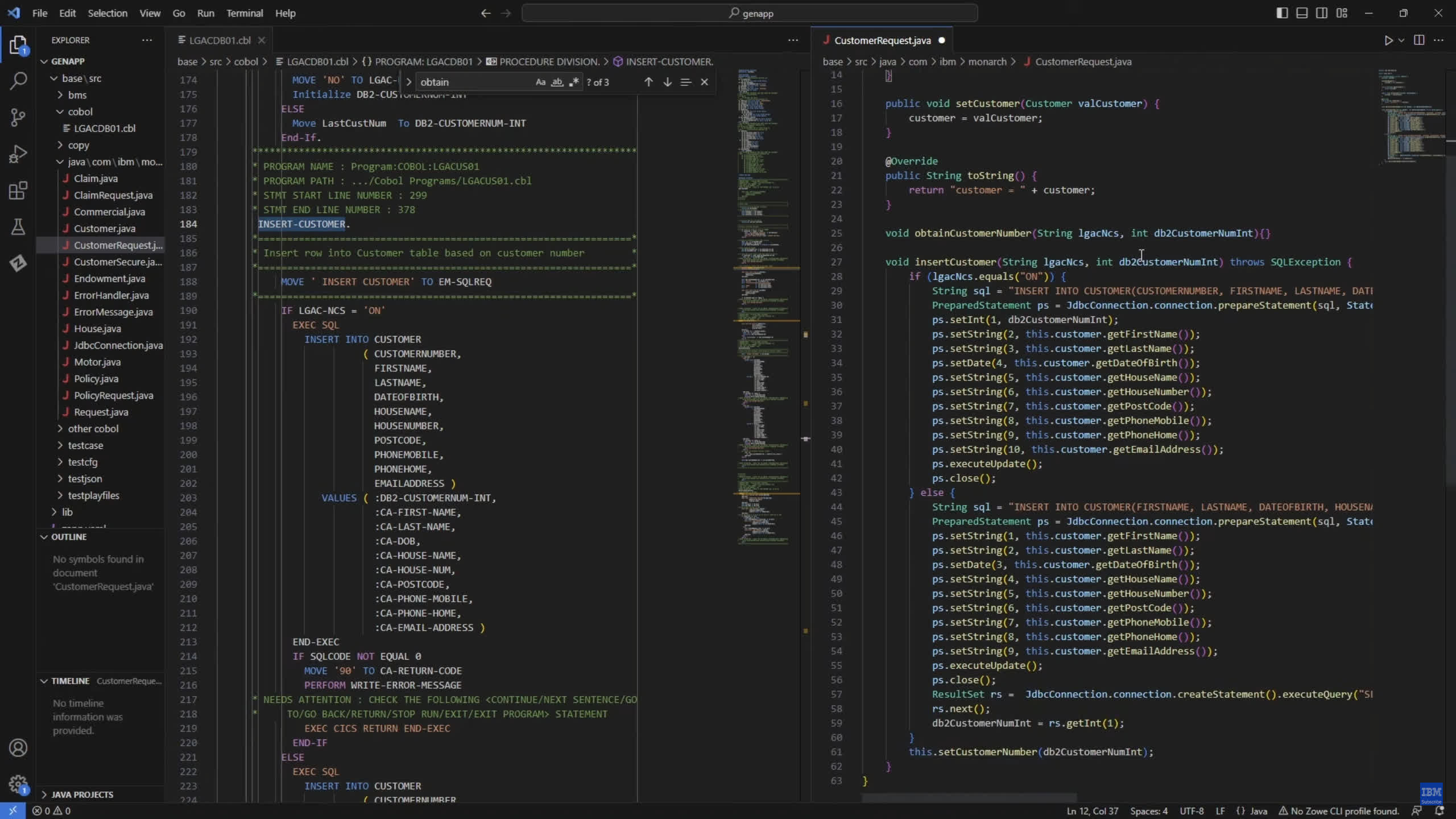TL;DR: IBM introduced a few months ago a new AI-powered service designed to assist industries in transitioning from COBOL to newer programming standards. Watsonx can do a lot to modernize the ancient language, but it will always need a human programmer to get the job done, says IBM.
According to IBM's Z Software VP, Skyla Loomis, Watsonx is a "developer assistant tool" that uses AI but can't perform every task independently. The generative AI service and the human programmer form a partnership to transform selected portions of COBOL code, but the code the AI provides will ultimately require some "minor editing" before entering production.
Despite being 64 years old, COBOL (Common Business Oriented Language) is still widely used in mainframe computers employed by critical industries such as banking, automotive, insurance, government, healthcare, and more. Recent estimations from the International Journal of Advanced Research in Science state that 43 percent of all banking systems still use COBOL, and $3 trillion daily transactions (ATM, credit cards) are managed through code compiled from the ancient language.
Watsonx was created to address the COBOL issue, providing an end-to-end solution that involves a multi-step process to perform complex code translation tasks. Keri Olson, IBM's Vice President of Product Management and IT Automation, explained that private and government customers can employ the generative AI service to break existing dependencies into smaller pieces. With IBM's own programmers' help, the customer can choose which part of the code they want (or need) to modernize by transforming COBOL syntax into Java.
At the end of the day, Loomis said, 80 or 90 percent of the translated code provides an effective (and functioning) modernization result, but the human programmer will have to make the "couple of changes" required to complete the task. Watsonx is a productivity enhancement, Loomis remarked, not a replacement for developers.
Previous IBM ventures into the AI business didn't meet the incredibly high expectations set by the company, and now people are skeptical about generative AI succeeding where Watson Health failed.
According to Gartner's Arun Chandrasekara, IBM has "no case studies" to validate the code modernization capabilities of Watsonx. Olson acknowledged the issue, stating, however, that IBM is leveraging its experience with mainframe computing and AI to provide a state-of-the-art AI experience, even though the company is still in the "early days" in terms of client acquisition.

